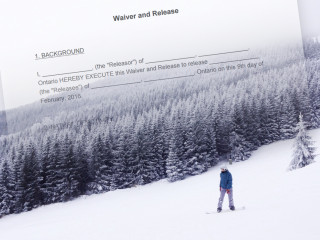Full Decision
CONTEXTUAL HISTORY
The Appellant, Mr. White, suffered a pinhole bowel leak after routine bowel surgery. Mr. White claimed damages based on a breach of the standard of care with respect to his post-op care and follow-up. The allegation for causation included the development of septic shock due to delay in detecting the leak and requiring remedial surgery with anti-biotics and a lengthily ICU stay. The Trial Judge dismissed the Action. On Appeal, Mr. White sought relief against the hospital and one nurse, with respect to his post-op care and treatment.
ISSUE
1. Whether the Defendants breached the applicable standard of care so as to establish a palpable and overriding error upon the Trial Judgment?
BRIEF ANSWER
No. The Appeal was dismissed with costs agreed upon at $20,000.00.
ANALYSIS
The Court of Appeal at [25] commenced their analysis with their decision in Sacks v. Ross, 2017 ONCA 773 with regard to the phrase ‘caused or contributed’ as embodied with the Negligence Act, R.S.O. 1990, c. N. 1 at s.1 and the recent confirmation of the ‘but-for¬’ test as set out by the Supreme Court in Clements v. Clements, 2012 SCC 32 at [8].
The hurdle to overcome rested with the Trial Judge’s finding that Mr. White failed to establish that the delay in treatment caused his injuries. Further, that the outcome would have been no different whether or not the alleged negligence occurred.
The Court of Appeal could find no palpable or overriding error with regard to the record before them. The Defendants responded to drops in blood pressure post-op, took vitals as required, monitored and investigated dark urine output, and addressed the subjective complaints of pain Mr. White brought to their attention.
In addition, the Court of Appeal found that Mr. White failed to lead expert evidence to support the position that the nursing staff’s failure to report his complaints of ongoing pain amounted to a breach of their standard of care.
Mr. White argued however that the Trial Judge misconstrued the legal test for causation effectively requiring him to establish the ‘most significant’ cause of the harm. The Court of Appeal rejected this submission at [27]. The record showed that Mr. White failed to establish any harm that was caused by the alleged negligence because his outcome (septic shock) would have been no different regardless of the alleged negligence.
Expert witnesses who testified at Trial for the Defence opined that there was nothing that could have avoided the ICU stay. The inflammatory cascade developed over time causing septic shock and that intervention would not have resulted in a different or better outcome. Mr. White argued that the administration of anti-biotics did not comply with proper hospital operating protocols. Further that any errors in the administration of anti-biotics would not have stopped the eventual septic shock and ICU stay. This was accepted by the Trial Judge, and no evidence on Appeal of a palpable or overriding error could be established.
Counsel for the Mr. White was correct in that evidence of delay in treatment can have adverse consequences on a patient’s outcome. What is missing, according to the Court of Appeal at [41], was the actual link between the delay in diagnosis and treatment, and Mr. White’s injuries.
CONCLUSION
While there was no need to establish a causal link between Mr. White’s injury with any particular pecuniary loss, he did not establish that the alleged negligence caused the injury.














